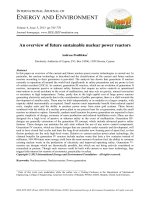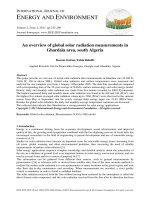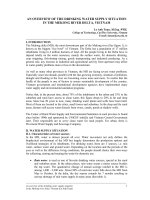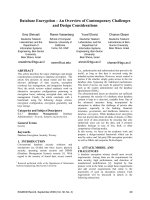An overview of noun clauses
Bạn đang xem bản rút gọn của tài liệu. Xem và tải ngay bản đầy đủ của tài liệu tại đây (9.95 KB, 1 trang )
An overview of noun clauses
A complex sentence consists of one independent clause and one or more dependent clauses.
Note that an independent clause can stand by itself and make complete sense. A dependent clause, on the other
hand, cannot stand alone. It has to be attached to an independent clause.
There are three kinds of subordinate clauses: noun clause, adjective clause and adverb clause.
The noun clause
The noun clause serves the same function as a noun. It can be the subject or the object of the verb. It can also
act as the subject complement.
Study the examples given below.
That he will be selected for the job is certain.
Here the noun clause ‘that he will be selected for the job’ acts as the subject of the verb ‘is’.
He says that he may be selected.
Here the noun clause ‘that he may be selected’ acts as the object of the verb ‘says’.
The rumor is that their engagement has been called off.
Here the noun clause ‘that their engagement has been called off’ acts as the complement of the subject ‘the
rumor’.
The news that he had been arrested distressed his followers.
Here the noun clause ‘that he had been arrested’ is in apposition to the noun ‘news’.
A noun clause can also act as the object of a preposition.
I am really impressed with what you have done.
Here the noun clause ‘what you have done’ is the object of the preposition ‘with’.
Stay on top of your writing! Download our grammar guide from www.englishgrammar.org to stay up-to-date.
Powered by TCPDF (www.tcpdf.org)









